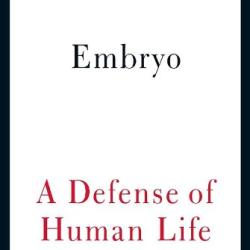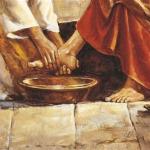A group I am on recently got to discussing different NFP methods, after a newcomer expressed some confusion over how to choose between all of the different methods of fertility awareness.
Someone else posted this helpful and short quiz, but I came up with a few, slightly sillier, questions of my own:
Match Your Method to Your Personality
1) Does the idea of touching mucus squick you out?
2) Are you not only NOT squicked out, but actually really comfortable with your lady bits? (ie, comfortable enough to insert tampons without an applicator, or maybe even use a Diva or Mooncup)
3) Are you/your spouse numbers and formula kind of people? (Programmers sometimes LOVE the more complicated charts and systems)
4) Do you hate seeing your GYN because they aren’t interested in your angst over your irregular/uncomfortable/pad soaking periods, or have no answers and only offer the Pill?
5) Do numbers and graphs give you ‘math anxiety’? How do you feel about pretty stickers?
6) Are you pretty observant and good at building new daily habits?
7) Are you the kind of person who has to look at everything that comes out of your body? (ie, you look at your kleenex when you blow your nose, look at your pad when you change it…)
8)Do you like things standardized and codified? ie, does it drive you crazy that different people have different names for the same color shades?”
9)Do decisions and judgment calls cause you a TON of stress? Are you the kind of person who frets over whether or not you’ve sent your kids to school with the right clothing because you don’t quite trust your weather sense?
10) Are you a cheapskate?
Answers:
1. Billings doesn’t require touching mucus to make observations, only observing sensation.
2. If you’re really comfortable with your ‘bits’, you might find it interesting to learn about the cervix sign used (optionally) in some sympto-thermal (STM) methods like CCL.
3. STM methods have temperatures to chart, which some men appreciate because it is an ‘objective’ symptom that is easy for them to participate with gathering and charting. Creighton/NaPro has a very standardized and medicalized system that scientifically minded couples might appreciate.
4. Any NFP method can be used to identify cycle-related problems, but Creighton is associated with the NaPro method, and there are NaPro trained doctors scattered around North America who can be a Godsend for women with difficult cycle-related health problems like PCOS or endometriosis.
5. If charts and lists of rules make you anxious, you might appreciate the simplicity of a mucus method, particularly Billings, which charts one symptom – mucus sensation – and has a super-simple variant that uses color coded stickers to show the different phases.
6. Billings requires paying close attention to mucus sensation throughout the day. Creighton has a procedure for making observations that is to be used every time you use the bathroom. All of the methods require some amount of mucus observation throughout the day, but if you don’t trust yourself to pay attention, you might like to have the temperature cross check and multiple rule variants of an STM. If you really want added reassurance, you can try a monitor based method like Marquette, so that you can see the hormonal changes reflected in your monitor reading.
7. If you are curious about bodily fluids, you’re good to go with any method, and might appreciate Creighton’s thorough classification scheme for different qualities of mucus.
8. Creighton. Definitely Creighton, if you like things very very defined.
9. This is where the Marquette method shines – it is easier to point to the results on a fertility monitor, especially when talking to a reluctant spouse, than it can be to try to act confident when you doubt your own observations and judgment.
10. Marquette requires a hefty up front investment in the monitor, and then monthly costs for the testing strips. Creighton can be pricey to learn, since the teachers all invest a large chunk to become certified. Everything else varies on the teachers in your area, and many will be willing to be flexible on fees.














